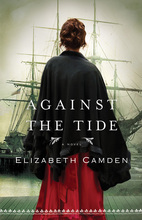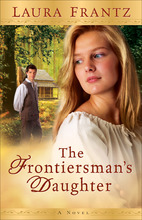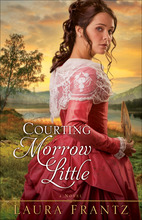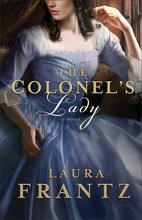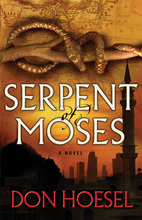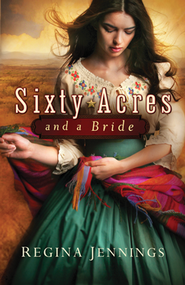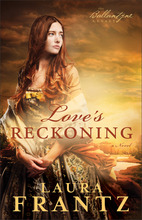 One of my favorite aspects of Laura Frantz's novels is her tendency toward epics - the novels span years, not just a couple weeks, and they depict lesser-known parts of American history, with good looks at the ugly as well as the beautiful. It's not just a story of the romance between two people - yes, there is love, but it is the story of their lives and hardships through which they persevere. She takes the time to develop the story and doesn't rush through it, while at the same time she never lets dullness take root.
One of my favorite aspects of Laura Frantz's novels is her tendency toward epics - the novels span years, not just a couple weeks, and they depict lesser-known parts of American history, with good looks at the ugly as well as the beautiful. It's not just a story of the romance between two people - yes, there is love, but it is the story of their lives and hardships through which they persevere. She takes the time to develop the story and doesn't rush through it, while at the same time she never lets dullness take root. Unlike her three novels set in American Revolution Kentucky, Love's Reckoning is in post-American Revolution Pennsylvania, when even western Pennsylvania is growing increasingly civilized. However, old British traditions still cling, and the consequences of breaking the traditions can be weighty. As an apprentice, Silas Ballantyne in unknowingly caught up in the tradition of marrying the master's daughter, which he eventually discovers will determine whether his apprenticeship is completed or broken and unable to be resumed. While he knows which daughter he would prefer to marry, he refuses to be forced into the marriage when his dreams lie further west, where he can make something of himself besides merely a poor blacksmith.
As a daughter, Eden is only a tool in the hands of her father - to be used to keep a tidy house and to be given in marriage to cement an alliance. She dreads the possibility that the new apprentice will have to marry her rather than her sister, and then she dreads her fate when her father starts making plans for a different husband. Her only hope of escaping her mother's fate - married to a man she doesn't love, abused, and over-worked - is to leave home entirely and seek a position in Philadelphia, hopefully escaping before she gets caught.
With God's grace, plans change and love blossoms, but Eden's spiteful sister and the once-brotherly neighbor intervene to rend them apart. Only after seemingly eons of hard work and growth do they finally reconcile the past and gain hope for the future.
Why, when they are so close to happiness, does her shame, his pride, and so much tragedy separate them? And yet, in spite of their mistakes and the overwhelming circumstances, God does not abandon them; He remains faithful, even as they doubt His goodness. They come back to rely on Him and He blesses them, first separately and then by bringing them back together. As Frantz quotes Comte du Buffon, "Never think that God's delays are God's denials" (329). He always remains faithful, even in greatest hardship - after all, His own son went through the very worst so that we shall never be separated from Him. He says, "For I know the thoughts I have think toward you - thoughts of good and not of evil, to give you a future and a hope." (Jeremiah 29:11).
Ballantyne Legacy:
1. Love's Reckoning
2. Love's Awakening
3. Love's Fortune

